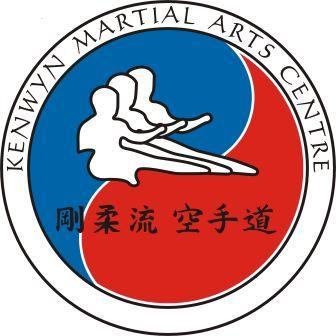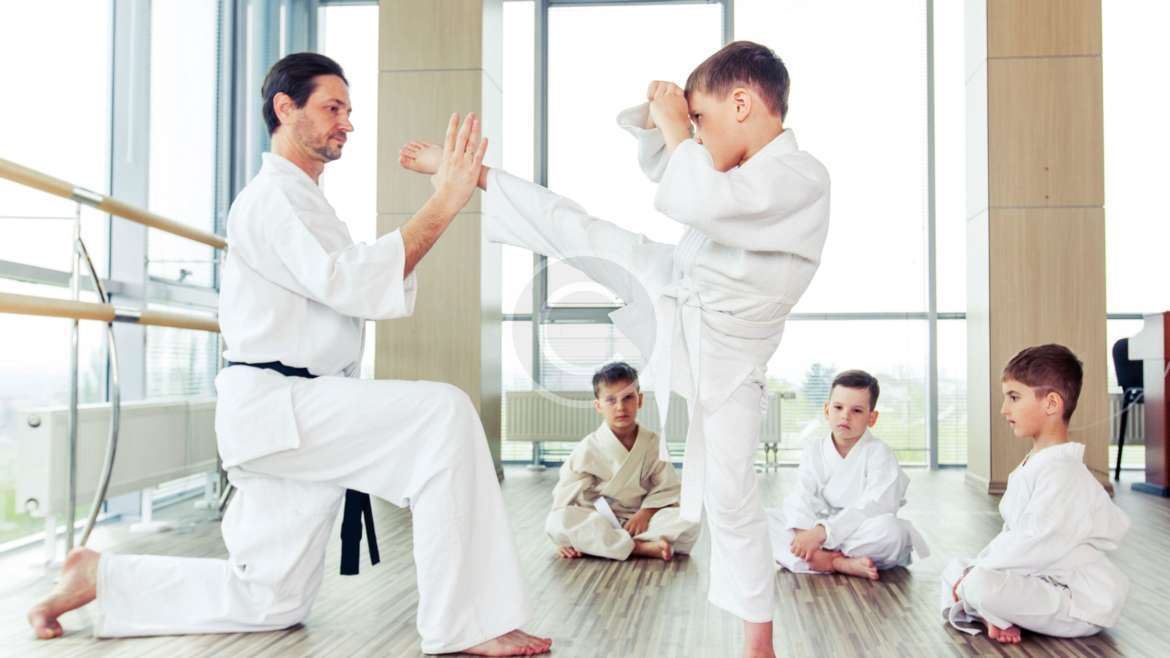Trust and patience are two foundational qualities that are deeply cultivated in Karate, and they play a crucial role not only in your martial arts practice but also in your personal development. Here’s a deeper look at how trust and patience are developed in Karate and why they are essential both in and outside the dojo:
1. Trust in the Process of Learning
- Mastery Takes Time: One of the key lessons in Karate is that mastery is a gradual process. Techniques, forms (katas), and even the mental aspects of Karate take time to develop. This requires trust in the long-term journey and the belief that consistent practice will lead to improvement, even when progress may seem slow at times.
- Example: When learning a new kata or technique, beginners may initially struggle, but they are taught to trust the repetition and the process. Trusting that with time and consistent effort, their skills will improve—despite the challenges—is fundamental to achieving success.
- Trust in Your Instructor: In Karate, your instructor (sensei) serves as a guide. Trusting your sensei’s experience and wisdom allows you to follow their guidance, even when you don’t fully understand the reasoning behind certain methods or training approaches.
- Example: When an instructor gives you a challenging task, like perfecting a specific stance or mastering a complicated move, trust that their advice is designed to build your foundation and increase your overall skill. Over time, you’ll see the benefits of their guidance.
2. Trust in Yourself
- Building Self-Confidence: Trusting in your own abilities is central to becoming proficient in Karate. Even when faced with difficult tasks, learning to trust yourself and your instincts allows you to push forward and take on challenges.
- Example: When sparring, you must trust in the techniques you’ve learned. Doubting yourself or second-guessing your moves can lead to hesitation, which can affect your performance. Trusting in your training helps you react swiftly and effectively.
- Overcoming Doubt: There are many times in Karate training when you may feel frustrated or encounter a plateau. Self-doubt can creep in, and you may question whether you are making progress. In those moments, trust in your training and in the process can help you keep moving forward.
- Example: When practicing difficult techniques or forms (katas), it’s natural to hit a point where progress feels slow. Trusting that every effort is building toward improvement—even when it seems hard—keeps you going.
3. Patience in the Journey
- Gradual Improvement: Patience is one of the most important virtues in Karate. Whether it’s learning a new kata, mastering a specific move, or improving your sparring skills, patience is required to see the incremental progress that leads to mastery.
- Example: Achieving a black belt or a high rank in Karate is not something that happens overnight. It requires years of consistent training and patience. In Karate, you are taught to value the process over the outcome, understanding that the journey is just as important as the destination.
- Overcoming Frustration: As you learn, it’s common to encounter moments of frustration, especially when trying to perfect complex techniques. Patience helps you remain calm and focused, and trust in the process allows you to continue practicing without giving up.
- Example: Many Karate practitioners experience frustration when they struggle to perform a technique correctly. However, with patience and continued practice, the technique eventually comes naturally.
4. Patience with Others (In Training and Sparring)
- Sparring with Respect: In Karate, sparring (kumite) is not just about defeating your opponent but about mutual learning and improvement. Having patience with your sparring partner, especially when they are less experienced or struggling with a technique, fosters a supportive environment where both people can grow.
- Example: If you are a more advanced practitioner sparring with a beginner, patience is crucial. You can’t rush them or expect them to perform at your level immediately. Instead, you practice controlled techniques, allowing them time to improve while you learn patience in the process.
- Trusting Your Partners: Karate is often practiced in pairs, such as when performing partner drills or learning self-defense techniques. In these situations, trust is essential for safe and effective practice. You must trust that your partner will follow the techniques properly, and they must trust you as well. Patience is required because it takes time to build synchronization and flow in these partner exercises.
- Example: In self-defense training, a partner may simulate an attack, and you must practice blocking or countering the attack. If you or your partner makes a mistake, patience is necessary to correct the mistake and continue learning.
5. Trust in the Art and its Philosophy
- The Philosophy of Karate: Karate is more than just physical technique; it is a way of life that emphasizes discipline, respect, humility, and the development of character. This philosophy requires trust in the martial art itself and its ability to transform you, not just as a fighter but as a person.
- Example: Karate teaches principles like “karate ni sente nashi” (there is no first strike in Karate), which encourages patience and a defensive mindset. Trusting in these principles shapes your approach to conflict both inside and outside the dojo.
- Acceptance of Limitations: Karate teaches you to accept your current limitations, whether it’s in terms of flexibility, strength, or technique. Patience with yourself means acknowledging where you are now while continuing to work toward improvement.
- Example: If you’re struggling with a particular kata or technique, practicing patience allows you to accept that it’s a process, and improvement will come gradually.
6. Developing Trust and Patience for Long-Term Success
- Building Strong Habits: Karate teaches you to develop positive habits—not just in terms of technique, but in terms of discipline and training. This requires both trust in the process and patience with yourself as you develop consistent habits over time.
- Example: Developing the habit of consistent training, attending classes regularly, and working on techniques outside of class all require patience. The rewards come later, but trusting the process will ultimately lead to mastery.
- Sustaining Motivation: Trust and patience help you stay motivated even when progress isn’t immediately visible. Karate is a lifelong journey, and by learning to trust that each training session contributes to your growth, you can stay motivated even when facing setbacks.
- Example: If you’ve been training for years without significant rank advancement, it’s easy to feel discouraged. But maintaining patience and trusting in your journey will keep you moving forward, knowing that each step builds toward mastery.


87 Comments
Best partnership https://shorturl.fm/A5ni8
Very good https://shorturl.fm/TbTre
https://shorturl.fm/bODKa
https://shorturl.fm/XIZGD
https://shorturl.fm/5JO3e
https://shorturl.fm/XIZGD
https://shorturl.fm/9fnIC
https://shorturl.fm/m8ueY
https://shorturl.fm/m8ueY
https://shorturl.fm/bODKa
https://shorturl.fm/9fnIC
https://shorturl.fm/9fnIC
https://shorturl.fm/bODKa
https://shorturl.fm/6539m
https://shorturl.fm/a0B2m
https://shorturl.fm/a0B2m
https://shorturl.fm/FIJkD
https://shorturl.fm/a0B2m
https://shorturl.fm/YvSxU
https://shorturl.fm/TbTre
https://shorturl.fm/FIJkD
https://shorturl.fm/j3kEj
https://shorturl.fm/YvSxU
https://shorturl.fm/XIZGD
https://shorturl.fm/ypgnt
https://shorturl.fm/MVjF1
https://shorturl.fm/retLL
https://shorturl.fm/Kp34g
https://shorturl.fm/xlGWd
https://shorturl.fm/hQjgP
https://shorturl.fm/I3T8M
https://shorturl.fm/47rLb
Promote our products and earn real money—apply today! https://shorturl.fm/YUoFY
Promote our products and earn real money—apply today! https://shorturl.fm/YUoFY
Join our affiliate community and maximize your profits! https://shorturl.fm/uX0bU
Join our affiliate program and watch your earnings skyrocket—sign up now! https://shorturl.fm/O95oe
Boost your income effortlessly—join our affiliate network now! https://shorturl.fm/DXJq6
Tap into unlimited earning potential—become our affiliate partner! https://shorturl.fm/npomi
Share our products, reap the rewards—apply to our affiliate program! https://shorturl.fm/4VErE
Partner with us and earn recurring commissions—join the affiliate program! https://shorturl.fm/jeQyA
Turn your audience into earnings—become an affiliate partner today! https://shorturl.fm/P6NH2
Maximize your earnings with top-tier offers—apply now! https://shorturl.fm/D5pZt
Tap into unlimited earnings—sign up for our affiliate program! https://shorturl.fm/AdMNc
Apply now and unlock exclusive affiliate rewards! https://shorturl.fm/huww3
Start earning passive income—become our affiliate partner! https://shorturl.fm/ZdJHx
Your influence, your income—join our affiliate network today! https://shorturl.fm/5vTvR
Turn referrals into revenue—sign up for our affiliate program today! https://shorturl.fm/Tj9RM
Promote, refer, earn—join our affiliate program now! https://shorturl.fm/hpEpg
Boost your income—enroll in our affiliate program today! https://shorturl.fm/QCpNP
Share our products and watch your earnings grow—join our affiliate program! https://shorturl.fm/m18u5
Sign up now and access top-converting affiliate offers! https://shorturl.fm/PugT5
Join our affiliate community and maximize your profits! https://shorturl.fm/YiHdG
Start earning every time someone clicks—join now! https://shorturl.fm/9KtWz
Tap into unlimited earnings—sign up for our affiliate program! https://shorturl.fm/Xz3Ry
Get paid for every click—join our affiliate network now! https://shorturl.fm/VwYaL
Become our affiliate and watch your wallet grow—apply now! https://shorturl.fm/u4dtD
Sign up and turn your connections into cash—join our affiliate program! https://shorturl.fm/xug5n
Partner with us and enjoy recurring commission payouts! https://shorturl.fm/rRkFS
Turn your traffic into cash—join our affiliate program! https://shorturl.fm/inkZI
Share our offers and watch your wallet grow—become an affiliate! https://shorturl.fm/2uZXP
Turn your traffic into cash—join our affiliate program! https://shorturl.fm/EcUPE
Share your link, earn rewards—sign up for our affiliate program! https://shorturl.fm/at4h9
Promote our products and earn real money—apply today! https://shorturl.fm/7OIGC
Become our affiliate and watch your wallet grow—apply now! https://shorturl.fm/J6HH1
Refer friends, collect commissions—sign up now! https://shorturl.fm/m8F9c
Start earning passive income—become our affiliate partner! https://shorturl.fm/dDEmw
Get paid for every click—join our affiliate network now! https://shorturl.fm/nyXbU
Earn up to 40% commission per sale—join our affiliate program now! https://shorturl.fm/7tBjS
Start earning on every sale—become our affiliate partner today! https://shorturl.fm/96JLO
Start profiting from your network—sign up today! https://shorturl.fm/GbD42
Refer and earn up to 50% commission—join now! https://shorturl.fm/Krgjw
Refer friends and colleagues—get paid for every signup! https://shorturl.fm/qwPoG
Drive sales, collect commissions—join our affiliate team! https://shorturl.fm/nyMeL
Turn referrals into revenue—sign up for our affiliate program today! https://shorturl.fm/GzAIw
Promote our brand, reap the rewards—apply to our affiliate program today! https://shorturl.fm/wlZSn
Share our link, earn real money—signup for our affiliate program! https://shorturl.fm/HGusq
Share your unique link and cash in—join now! https://shorturl.fm/QPUoM
https://shorturl.fm/W8aQj
https://shorturl.fm/g2iap
https://shorturl.fm/mS37X
https://shorturl.fm/3izct
https://shorturl.fm/fzWm7
https://shorturl.fm/oAcDQ
https://shorturl.fm/EVZPw
https://shorturl.fm/mlQHs
https://shorturl.fm/iS3JE
https://shorturl.fm/R4maX